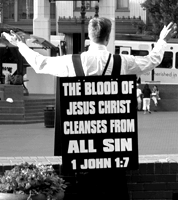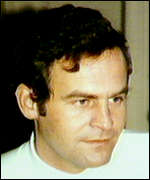In little more than ten years St. Paul established the Church in four provinces of the Empire Galatia; Macedonia, Achaia and Asia... Today if a man ventures to suggest that there may be something in the methods by which St. Paul attained such wonderful results worthy of our careful attention, and perhaps of our imitation, he is in danger of being accused of REVOLUTIONARY TENDENCIES. --Roland Allen
Saturday, July 19, 2014
Accountability Questions for Groups
- Here is an outline with the DNA elements in parenthesis:
- Ask: What are you thankful for this week? (Prayer/Worship)
- Ask: What has stressed you out this week? What do you need for things to be better? (Intercession)
- Ask: What are the needs of the people in your community? (Ministry)
- Ask: How can we help each other with the needs we expressed? (Ministry)
- Ask: What did we talk about last week? (Review/Accountability)
- Ask: Did you change anything in your life as a result of last week’s story? (Accountability/Obedience)
- Ask: Did you get a chance to share the story with [the person they identified]? (Accountability/Evangelism)
- Ask: We identified several needs last week and planned to meet those needs. How did it go? (Accountability/Ministry)
- Say: Let’s see what the Bible teaches us this week. Read this week’s passage. (Scripture)
- Ask for someone to retell the passage in his or her own words. Like they were telling a friend who wasn’t there. (Understanding/Evangelism)
- Ask the Group: Do you agree with their retelling? Is there something they added or left out that they shouldn’t have? As long as the group doesn’t miss a key component of the passage, continue. If they miss something, read the passage again. If someone states something that isn’t in the passage, ask, “Where did you find [what they said] in this passage?” Reread the passage, if necessary. (Priesthood of Believers/Group Correction/Understanding)
- Ask: What does this passage teach us about God? (Discovery/Scripture/Priesthood of Believers)
- Ask: What does this passage teach us about humanity? (Discovery/Scripture/Priesthood of Believers)
- Ask: If we believe this passage is from God, how must we change? (Discovery/Scripture/Obedience/Priesthood of Believers)
- Ask: Who are you going to share this passage with before we meet again? (Evangelism/Replication)
- Ask: When do you want to meet again? This is a practical question. You will never get someone to commit to a 26-week study. But, you can give them the option to meet again next week. If they are really seeking and if the meeting is filling a need, they will tell you they want to meet again.
Labels:
Accountability,
Community Groups,
Small Groups
Gospel Definitions
Ed Stetzer's article

NOV 16, 2009
Gospel Definitions
Ed Stetzer

There is a lot of talk about the gospel these day. Yes, it's all gospel and gospel-centeredness, and yet many are still fuzzy when it comes to defining the good news of Jesus Christ.
In my Missional Church class at ReTrain this week, I share some thoughts on the gospel. Why? Well, I believe that what you believe about the gospel will be the foundation for your understanding of the mission.
To do that, I first reviewed some gospel definitions assembled by Trevin Wax at his blogKingdom People. You can find a PDF and lists by names by clicking this link. Then, I shared a few of them (at first I did not identify the source). You can download a PowerPoint of the ones I shared here: Gospel Definitions.ppt. I took some pleasure in watching the students agree (at times) with the definitions from people with whom they disagree.
As I explain in this post, whenever I teach on the missional church, it is always an opportunity to talk about the Gospel since I tend to present the ideas around:
What is the Gospel?What is the mission?What is the church?What is the Kingdom?
So, we began our definitions at ReTrain by having the cohorts make a definition and report back. Here are those gospel definitions...
The Gospel is the good news that God has sent his son Jesus Christ into the world in order to reconcile Creator to creation, which will renew all things and he has done all this through Jesus' perfect sinless life, bloody atoning death on the cross and subsequent resurrection from the dead.- Admin Cohort's DefinitionOur glorious God created everything we know. We, his creation, rebelled seeking our own glory and deserving the full wrath of God. The gospel is the good news that Jesus lived the life we should have lived to the glory of the Father. He died in our place, for all our sinful, false worship. Through Jesus, by the power of the Spirit, we live a new life to His glory. As we behold the glory of Jesus we are transformed to look more like Him, united in the Church as His body through which his kingdom is advanced making all things new.- Worship CohortGod created man in His image to glorify HimMankind rebelled against God in sinThe gospel is the good news of Godʼs provision of redemptionThrough the atoning work of Jesus the ChristWho died in our place for our sin on the crossRising from the grave to conquer Satan, sin and deathGiving new life to all who by graceturn to Him in repentance and faithCalling them to a life empowered by His SpiritTo accomplish the mission of His kingdomTo the glory of His name- Campus Pastor CohortThe gospel is the power of God for salvation of everyone who believes. Through Jesus' life, death, and resurrection God overcomes sin, sin's consequences, Satan, and death and subjects all things under his feet. And, in Christ, through the power of the Holy Spirit, God is reconciling the world to himself.- Biblical Living, Family and Community Group CohortGod redeems fallen mankind through the life, death and resurrection of Jesus which regenerates individuals through the Holy Spirit and renews all of His creation as He establishes His Kingdom.- Church Planting CohortThe Gospel is the truth that Jesus Christ, God the Son sent from the God the Father, empowered by God the Spirit, lived a sinless life, died on the cross for the atonement of sinners, and rose from the dead triumphing over satan, sin, and death in accordance with the Scriptures.- Acts 29 Church Planting Cohort
One of the key issues is this question: Is the gospel only God-Man-Christ-Response or does it include elements of Creation-Fall-Redemption-Restoration. I think it is interesting how the worship leaders cohort differed from the Acts 29 church planting cohort (and, I should add, there was a "minority report" from the Acts 29 church planting cohort that wanted to include a Creation-Fall-Redemption-Restoration focus).
In class, I shared this article, on the difference between the gospel and the effects of the gospel, with the class. D.A. Carson and I discussed it recently while I was teaching at Trinity and I like it. Carson explains:
If the gospel is the (good) news about what God has done in Christ Jesus, there is ample place for including under "the gospel" the ways in which the kingdom has dawned and is coming, for tying this kingdom to Jesus' death and resurrection, for demonstrating that the purpose of what God has done is to reconcile sinners to himself and finally to bring under one head a renovated and transformed new heaven and new earth, for talking about God's gift of the Holy Spirit, consequent upon Christ's resurrection and ascension to the right hand of the Majesty on high, and above all for focusing attention on what Paul (and others--though the language I'm using here reflects Paul) sees as the matter "of first importance": Christ crucified. All of this is what God has done; it is what we proclaim; it is the news, the great news, the good news.
For another view, see Scott McKnight in Christianity Today's Out of Ur blog. Also, Matt Chandler makes a case for including both God-Man-Christ-Response and Creation-Fall-Redemption-Restoration in his SBTS chapel message (including mentioning some helpful warnings about how we speak of others "tribes" in the church).
Below is the definition I am using. I am still tweaking and revising it (but trying NOT to make it longer). If Packer can define the gospel as, "God saves sinners," I figure we should be able to do it in a paragraph!
Anyway, here is what I am using today:
The gospel is the good news that God, who is more holy than we can imagine, looked upon with compassion, people, who are more sinful than we would possibly admit, and sent Jesus into history to establish His Kingdom and reconcile people and the world to himself. Jesus, whose love is more extravagant than we can measure, came to sacrificially die for us so that, by His death and resurrection, we might gain through His grace what the Bible defines as new and eternal life.
I chose not to include the response to the gospel ("repentance by grace through faith alone," for example), but just tried to focus on what the gospel actually is. I edit it regularly as I try to grasp and preach the gospel to myself.
What are your thoughts? Feel free to share your own definitions or interact with the ones listed here. Then, I will learn and edit mine!
To read the comments, click HERE.
What Do Your Legs Look Like?
 The best question isn't "Do I have good theology, bad theology, strong theology or weak theology?"
The best question isn't "Do I have good theology, bad theology, strong theology or weak theology?"I know many (thankfully very, very few personally) who hold to certain doctrines who proudly pound drums with great zeal regarding the greatness of their theology, yet who have very weak legs in which to carry that theology as a messenger of Good News in their everyday lives.
I also know many who are weak(er) in their faith and are not (yet) mature in their theology who shine bright because they better reflect their Savior. And though their ability to proclaim their message is not well developed, their legs are legs of marathoners and they run strong, they run proud and they run fearlessly as they allow the Message they carry to change lives.
So the better question isn't "Do I have good theology or bad theology?" but, "Am I obeying what I understand of God's Word and am I being changed by it and is that change causing others to see Jesus in me?"
Maybe we should also start to ask ourselves these two questions, "Do I look more like Jesus or the Pharisees?" And, "Am I worshiping a theology or the God who that theology points to?"
Thursday, July 17, 2014
AWAKE ROMANIA!
The following article may be found HERE.
 In the 1940′s and 50′s, under young leaders like Nicolae Ceausescu, Romania’s nightmare began. Multiplying like cockroaches, the Communists eliminated the light of opposition any way they could. Students and peasants, pastors and priests – over the years, millions were thrown into prison. Many died there...
In the 1940′s and 50′s, under young leaders like Nicolae Ceausescu, Romania’s nightmare began. Multiplying like cockroaches, the Communists eliminated the light of opposition any way they could. Students and peasants, pastors and priests – over the years, millions were thrown into prison. Many died there...
 On Sunday, December 10, Laszlo Tokes looked out over the upturned faces of his congregation. ”Dear brothers and sisters in Christ,” Tokes announced, “I have been issued a summons of eviction. I will not accept it, so I will be taken from you by force next Friday. They want to do this in secret because they have no right to do it. Please, come next Friday and be witnesses of what will happen. Come, be peaceful, but be witnesses.”
On Sunday, December 10, Laszlo Tokes looked out over the upturned faces of his congregation. ”Dear brothers and sisters in Christ,” Tokes announced, “I have been issued a summons of eviction. I will not accept it, so I will be taken from you by force next Friday. They want to do this in secret because they have no right to do it. Please, come next Friday and be witnesses of what will happen. Come, be peaceful, but be witnesses.”
Chuck Colson’s book, Being the Body, tells the story with an eye to the role of the Church. It all began with a Hungarian Reformed congregation that would rather bring down the government than part with their pastor…
The following is an abbreviated excerpt from Colson’s Being the Body. I hope you will pick up the book and read the whole story.
Communism and the Rise of Nicolae Ceausescu
 In the 1940′s and 50′s, under young leaders like Nicolae Ceausescu, Romania’s nightmare began. Multiplying like cockroaches, the Communists eliminated the light of opposition any way they could. Students and peasants, pastors and priests – over the years, millions were thrown into prison. Many died there...
In the 1940′s and 50′s, under young leaders like Nicolae Ceausescu, Romania’s nightmare began. Multiplying like cockroaches, the Communists eliminated the light of opposition any way they could. Students and peasants, pastors and priests – over the years, millions were thrown into prison. Many died there...
Waiting to Be Exiled
...the secret police must have concluded that killing Tokes (a pastor or the Hungarian Reformed Church who would not bow to Communism) would simply make him a martyr. Instead, they would render him ineffective by exiling him to a small, remote village outside of Timisoara. A court ordered his eviction from his home and church, setting the date for December 15, 1989.
 On Sunday, December 10, Laszlo Tokes looked out over the upturned faces of his congregation. ”Dear brothers and sisters in Christ,” Tokes announced, “I have been issued a summons of eviction. I will not accept it, so I will be taken from you by force next Friday. They want to do this in secret because they have no right to do it. Please, come next Friday and be witnesses of what will happen. Come, be peaceful, but be witnesses.”
On Sunday, December 10, Laszlo Tokes looked out over the upturned faces of his congregation. ”Dear brothers and sisters in Christ,” Tokes announced, “I have been issued a summons of eviction. I will not accept it, so I will be taken from you by force next Friday. They want to do this in secret because they have no right to do it. Please, come next Friday and be witnesses of what will happen. Come, be peaceful, but be witnesses.”
Click HERE to continue reading this fascinating article. See what God did and how Communism was toppled.
Subscribe to:
Posts (Atom)
